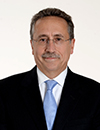| Conferences > Extracellular Vesicles 2023: Technologies, Biomarker Cargo & Diagnostics > Keynote Speakers |
| Register | Login |
Shilpa BuchProfessor and Senior Executive Vice Chair for Research, University of Nebraska Medical Center I am currently a Professor & Executive Vice Chair for Research and the Director of the Nebraska Center for Substance Abuse research at the University of Nebraska. I received my PhD in 1982 in Microbiology from Maharaja Sayajirao Univ in Baroda, India and moved to Canada for postdoctoral training. I began my independent research career as an Assistant Professor at the Hospital for Sick Kids, Toronto, following which, I moved to Kansas University and embarked on a research area focused on understanding how addictive drugs co-operate with HIV-1 to exacerbate neurological complications. I rose through the ranks at Kansas and in 2007, made a move as a full Professor to University of Nebraska in Omaha. Research approaches used in my lab involve a multipronged approach comprising of a variety of complementary model systems ranging from cell cultures to rodent models to the higher more relevant macaque model of SIV pathogenesis. More recently, my research interest is centered on exploring how exosomes act as conduits to transport key signaling mediators (small noncoding RNAs/microRNAs) to distant recipient cells as a means to regulate gene expression and cellular cross talk. I lead an active research program involving collaborations both nationally and internationally, with over 225 peer-reviewed publications. I have consistently held NIH funding throughout my career and continue to serve on NIH study sections. During my career, I have had the good fortune of being recognized by various national and International societies with the Wybran (2012) and the Distinguished services (2023; 2013) Awards, both of which hold a special meaning for me. I have also been awarded the UNMC Scientist laureate award (2016) in addition to the Kansas City scientist award. Aligning closely with my passion for mentoring, has enabled me to take an active leading role in the Women’s Mentoring Program at UNMC (2015-2017). I have also received the Women in Neuroscience award at the International Society of Neurovirology in 2016. I have played an active role as a Secretary of the Society on Neuroimmune Pharmacology and have been invited as a speaker & as a Chair at various meetings and have also organized several symposia. To further hone my leadership skills, I graduated from the Executive Leadership for Academic Medicine Program that fosters the growth and career trajectories of women leaders nationally. |
Andrew GodwinProfessor and Division Director, Genomic Diagnostics, Founding Director, Kansas Institute for Precision Medicine, Deputy Director, KU Cancer Center, University of Kansas Medical Center Andrew K. Godwin, PhD, the Chancellors Distinguished Chair in Biomedical Sciences endowed Professor, is a leader in the field of translational research and precision medicine. A native of Lawrence, Kansas, Andy graduated with highest distinction from the University of Kansas with a bachelor’s degree in Cellular Biology. He obtained his PhD in Molecular Biology from the University of Pennsylvania while carrying out his thesis research at Fox Chase Cancer Center in Philadelphia. Andy holds the distinction of being the only graduate student at FCCC to become a senior member (full professor with tenure). While at FCCC he had the pleasure of learning from “giants” in their respective fields of science. He was appointed leader of the FCCC’s Cancer Center Support Grant Ovarian Cancer Program in 2008 and served as co-leader of the Women's Cancer Program from 2009 to 2010. He was also the director of both the Clinical Molecular Genetics/Pathology Laboratory and the Biosample Repository at FCCC since their inception in 1995 and 1999 respectively, until leaving FCCC. |
Fatah KashanchiProfessor and Director of Research, Lab of Molecular Virology, George Mason University For the past eighteen years Kashanchi lab has been interested in understanding the mechanism of viral gene expression in human viruses and how the virus and the host control the dynamics of fundamental machineries needed for viral replication and/or host survival. They also have ample experience with biochemical pathways that leads to transcription and chromatin remolding using in vitro reconstituted machineries. These complexes with epigenetic modifications utilize host signaling events and therapeutic targets that control viral replication. In recent years, they have also started focusing on Extracellular vesicles (i.e., exosomes) mainly from latent virally infected cells. These cells remain in the body for a long period of time can be extended to the life of a person (i.e., CNS cells). These latent cells produce exosomes that carry markers of the infection including RNA and protein sequences specific to a given virus. The lab for the first time showed that viral release and exosome release have overlapping biogenesis in the ESCRT pathway. For instance, HIV-1 latent cells utilize ESCRT-I for viral release, and ESCRT-II for exosomal release. Using in vitro and in vivo (both patient samples and animal models), the lab has found that exosomes from HIV-1 infected cells carry short non-coding RNAs (i.e., TAR) which regulate TLR3 and other pathways in the recipient cells. Similar results were also observed from other neuro-tropic RNA viral infections including HTLV-1, Ebola, RVFV, SARS, and Zika infection. |
Kristin KopperudScience Program Director, Biological Sciences, International Space Station National Laboratory Dr. Kristin Kopperud joined the Center for the Advancement of Science in Space, Inc. (CASIS), which manages the International Space Station (ISS) National Laboratory, as an Operations Project Manager in June 2020. She transitioned to the role of Science Program Director of Biological Sciences in the Research and Innovation department in March 2022. Her focus areas include tissue engineering, in-space production applications and biomanufacturing, and rodent research. In this role, she works with Principal Investigators to outline their science requirements during the early stages of their projects’ lifecycles. Using skills developed in her former role in the Operations department, she is able to evaluate concepts and proposals from an operational standpoint as well as a scientific one, which helps her to refine the projects’ requirements to feasibly support biology in microgravity. She also works with the Education department to use science as a means of education and outreach and presents to the public in webinars and conferences to connect to researchers in microgravity and beyond. |
Lucia LanguinoProfessor of Cancer Biology, Thomas Jefferson University Dr. Languino investigates the role of cell adhesion receptors in phenotypic changes of prostate cancer cells. A strong research focus is being devoted to the study of the cross-talk between cell adhesion molecules, extracellular matrix proteins and growth factor receptors in vitro and in vivo systems and how this cross-talk affects intracellular signal transduction, cell survival, cell migration and cell division. Dr. Languino's research interests also focus on the cellular and molecular characterization of the metastatic process of prostate cancer with particular emphasis on the signals directing distant localization of prostate cancer cells |
Terry MorganProfessor, Oregon Health and Science University Dr. Morgan is a Professor of Pathology and Biomedical Engineering at Oregon Health & Science University (OHSU) in Portland, Oregon, USA. He has been an NIH-funded investigator since 2012 and he has worked with BD Biosciences since 2016 to develop, validate, and begin research trials using nanoscale high resolution flow cytometry to image, count, and isolate extracellular vesicles (EVs). Dr. Morgan is the leader of the EV research group at the Center for Developmental Health at OHSU. He is also the leader of the flow cytometry EV group at the Knight Cancer Institute to test its potential as a diagnostic platform for early cancer detection. |
Dominique PV de KleijnProfessor Experimental Vascular Surgery, Professor Netherlands Heart Institute, University Medical Center Utrecht, The Netherlands Prof. Dr. Dominique PV de Kleijn is molecular biologist and chemist and professor of Exp. Vascular Surgery at UMC Utrecht and professor at the Netherlands Heart Institute. From 2012 to 2016, he was Research Professor of Surgery at NUS/NUHS and preclinical director of the Cardiovascular Research Institute (CVRI) Singapore. He was until 2016 professor of Cardiovascular Immunology and co-chair of Experimental Cardiology at UMC Utrecht. Since 1997 he is coordinating cardiovascular research from basic science, animal myocardial infarction and atherosclerotic studies (pig and sheep) towards clinical biobanking studies. His research interests are: The innate immune system in cardiovascular disease and atherosclerosis & Biomarkers predictive for primary & secondary events with a focus on plasma extracellular vesicles. He has more then 275 publications and a H-factor of 78. |




